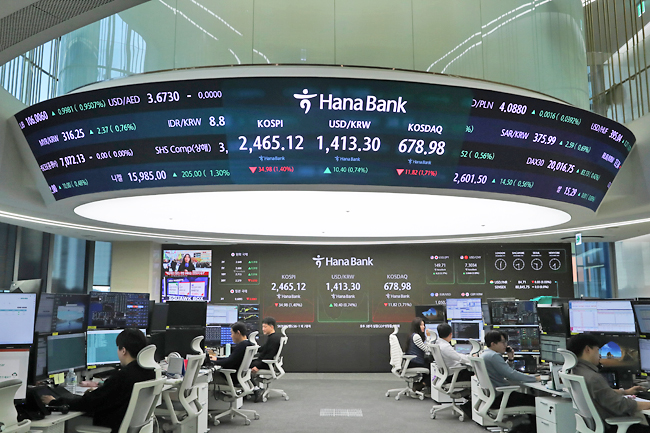ANN/THE KOREA HERALD – The Korean won continues its sharp decline against the United States (US) dollar, driven by rising political tensions and a reshaped global trade landscape.
On Friday, the won briefly touched 1,486.7 against the greenback during intraday trading, marking the first time in nearly 16 years it breached the 1,480 threshold. The last instance of such weakness was in March 2009, during the global financial crisis when the exchange rate hit KRW1,488.5.
Although the won recovered slightly, it hovered around the 1,470 range in after-hours trading, eventually closing at KRW1,470.5. The dollar-won exchange rate, which began the year at the 1,300 level, has surged dramatically.
Market anxiety has been further compounded by expectations that the US Federal Reserve may delay rate reductions, following signals from its December Federal Open Market Committee meeting. The depreciation of the won is exerting upward pressure on import prices, particularly energy, which is a significant concern for South Korea, a country heavily reliant on energy imports.
Rising import costs are pushing up overall prices, which could reverse the recent stabilisation of consumer price growth in the one per cent range. This inflationary trend may compel the Bank of Korea (BOK) to reconsider its current policy rate of three per cent.
While the BOK has forecast a two-per-cent rise in consumer prices for 2025, a persistently strong dollar could exacerbate inflation, prompting a potential rate cut. However, a rate cut would widen the interest rate gap with the US, weakening investment sentiment for won-denominated assets and accelerating capital outflows.
The won’s slide has already impacted the stock market. On Friday, the Kospi index fell below 2,400 as foreign investors offloaded KRW172.5 billion (USD117.1 million) worth of shares.
The ongoing currency weakness is also raising concerns about local lenders. A depreciating won inflates their risk-weighted assets, potentially straining their financial health. Despite this, the BOK has reassured markets that banks hold sufficient foreign reserves to withstand current levels of devaluation.
South Korea’s policymakers face mounting pressure to stabilise the currency as its decline threatens to derail economic recovery efforts and further weigh on consumer sentiment.



